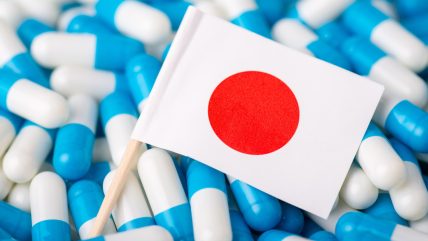Japanese patients among least empowered in developed world, study shows
2024-03-05

Preview
来源: Pharmaceutical Technology
Japan’s “paternalistic” health culture may be related to lower satisfaction. Photo: Vitalii Stock/Shutterstock.
Globaldata’s Patient Empowerment Thematic Intelligence report surveyed over 500 chronic patients across 11 countries on aspects of their care, catalogued by disease and nationality.
GlobalData is the parent company of Pharmaceutical Technology.
The general trend of the study was that chronic patients predominantly feel empowered to manage and understand their treatment. The Thematic Intelligence Team explains that: “The majority of patients with various chronic conditions agreed or strongly agreed that upon diagnosis they were given enough information about their condition, treatment options, medications, and services by their healthcare provider.”
Similarly, around three-quarters of patients studied believe that the data they receive from their health teams is evidence-based, and in all countries but Japan over 70% of patients were happy with the amount and quality of information received about their condition. In Japan, the number only reaches 60%.
See Also:Kronos Bio gets grant for CDK9 inhibitorsCDK9 inhibitors for modulating kinase activity in patients

Preview
来源: Pharmaceutical Technology

Preview
来源: Pharmaceutical Technology
Japan’s outlier status remains visible in more detailed breakdowns of patient empowerment metrics, scoring lowest on polling around informed decision-making, feeling respected by healthcare providers and confidence in managing signs and symptoms of their condition.
In many cases, the discrepancies are large, as in the case of symptom management in which its 42% agreement is over 20 points below its next closest comparator, Canada.
This mixture of dissatisfaction and lack of confidence may be explained by culture, the study suggests: “Japanese patients may still have fewer opportunities to participate in medical decision making as a result of the traditional paternalism of Japanese physicians, where HCP decisions are unquestionable and accepted by the patients.”
Whatever the reason, close scrutiny of the matter is necessary to ensure standards of care remain high.
更多内容,请访问原始网站
文中所述内容并不反映新药情报库及其所属公司任何意见及观点,如有版权侵扰或错误之处,请及时联系我们,我们会在24小时内配合处理。
靶点
热门报告
立即开始免费试用!
智慧芽新药情报库是智慧芽专为生命科学人士构建的基于AI的创新药情报平台,助您全方位提升您的研发与决策效率。
立即开始数据试用!
智慧芽新药库数据也通过智慧芽数据服务平台,以API或者数据包形式对外开放,助您更加充分利用智慧芽新药情报信息。





